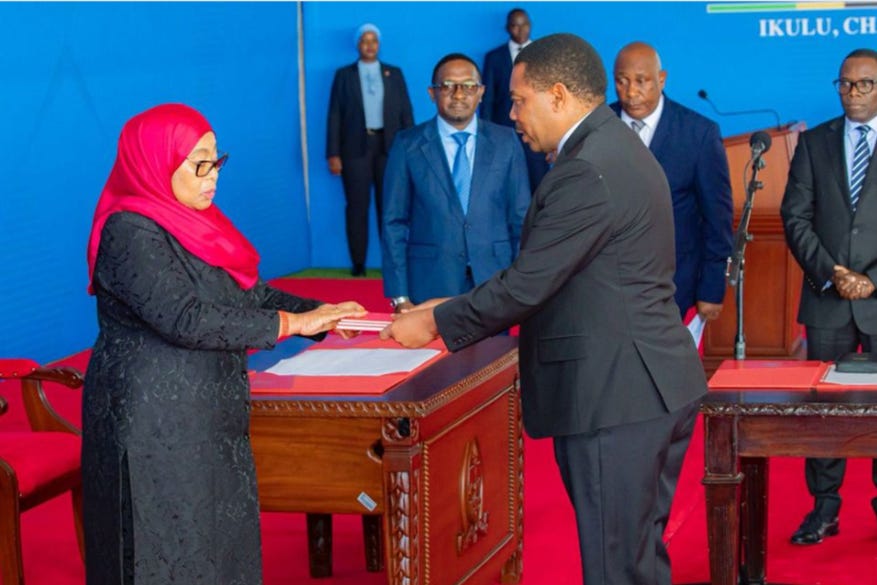INTELLIGENCE FORECAST: Tanzania Prime Minister Mwigulu Nchemba - Political Longevity Assessment
Ujasusi Blog’s East Africa Monitoring Team | 15 October 2025 | 0800 GMT
📊 Executive Summary: A Politically Vulnerable Prime Minister
President Samia Suluhu Hassan appointed Dr. Mwigulu Nchemba as Tanzania’s 12th Prime Minister on 13 November 2025. While the move was presented publicly as a vote of confidence—underscored by his 99.5% parliamentary confirmation—several political and structural factors suggest that his tenure may be significantly shorter than typical for the role.
The appointment came immediately after the most turbulent election period in Tanzania’s multiparty era. Various civil society actors and diplomatic observers reported large-scale unrest, numerous casualties, disappearances, and a multi-day information blackout. Precise figures remain contested, with some field reports circulating widely but still unverified. As Finance Minister from 2021–2025, Nchemba approved budgets across the national security sector, including intelligence and policing functions. Analysts note that this places him close to financial decision-making processes that are now under heightened international scrutiny.
According to regional analysts, his new role may serve not only as elevation but also as a politically strategic placement—positioning him within reach of the presidency yet exposed to high-risk responsibilities at a moment when Tanzania faces rising diplomatic pressure and potential external inquiries.
Key Structural Vulnerabilities
1. Exposure Through Security-Sector Financing
During his tenure as Finance Minister, Nchemba authorised multiple security-sector budget lines, including allocations to intelligence and enforcement operations. Human-rights organisations have published reports alleging that some security actors carried out serious abuses in recent years. While direct links to ministerial oversight remain unproven, the perception that he understands the full financial architecture of these institutions may create political risk for him.
Some observers argue that, should international legal bodies open formal investigations into events surrounding the 2025 election, individuals connected to financial governance may face heightened scrutiny—regardless of intention or awareness.
2. Diplomatic Burden Under International Pressure
With Tanzania experiencing increased criticism from international human-rights bodies and select Western governments, the Prime Minister may become the primary public representative tasked with responding to difficult questions at global forums. This places him in a politically delicate position: defending the state’s actions while also navigating evolving external expectations. In similar contexts internationally, such exposure has historically made certain office-holders more vulnerable to political reshuffling.
3. Internal Rivalries and Party Dynamics
Internal CCM political dynamics remain complex. Paul Makonda—an influential party figure—was widely perceived by some insiders as a possible contender for the premiership. Following the unexpected scale of Gen-Z-led protests, many analysts argue that internal blame-shifting and strategic repositioning may intensify. If intra-party factions view Nchemba as a temporary or compromise choice, the result could be an orchestrated effort to weaken his standing over time.
🎯 Forecasting Methodology: Three Intelligence Techniques Applied
This assessment employs rigorous Structured Analytic Techniques (SATs) to avoid analytical pitfalls and cognitive biases:


